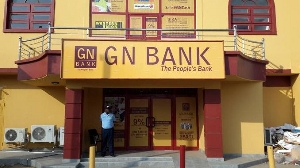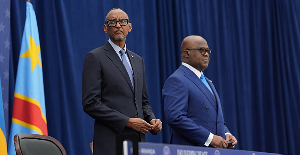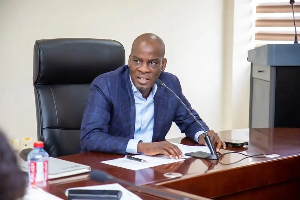There is a knowledge gap about how our oil and gas is managed responsibly and accountably as few Ghanaians know about the Public Interest and Accountable Committee (PIAC), its mandate and its functions.
The PIAC was established by section 51 of the Petroleum Revenue Management Act, 2011 (Act 815) as an additional public oversight body to assist Parliament execute its constitutionally mandated oversight function in the oil and gas sector. PIAC is Ghana's novel idea of involving citizens in the management of oil and gas resources in an effort to escape the resource curse trap that many oil-dependent developing economies fall into (See our stories on pages 2, 6 and 12).
Yet if there must be transparency, accountability and good governance in the management of Ghana's petroleum resources, then it is important that the citizens are adequately informed about the PIAC because that would empower the citizens to hold the government and managers of the oil and gas resources accountable.
The PIAC has the mandate to monitor and evaluate compliance by the government and other relevant institutions in the management and utilisation of petroleum revenues; provide a platform for public debate on spending prospects of petroleum revenues in line with development priorities; and provide an independent assessment of the management and use of revenues. The Act requires the PIAC to publish a semi-annual report and an annual report by 15th September and 15th March every year. Since it was inaugurated in 2011, the PIAC has so far released the 2011 annual and the 2012 semi-annual reports.
But the two reports by the PIAC cannot be said to be comprehensible and accessible as they are couched in technical language, and are not readily available and affordable. It is against this background that Public Agenda wishes to applaud the efforts of the Civil Society Platform on Oil and Gas, the PIAC and the World Bank for collaborating to launch an abridged version of the original reports titled 'Managing our Oil and Gas Revenues: How well are we going?'
Due to logistical challenges, however, the PIAC could not release an annual report for 2012. Annual and semi-annual reports for 2013 have also not been published. Public Agenda, therefore, appeals to the PIAC to be timely in coming out with its reports because they very important for the country's fledgling petroleum sector. In this connection, we welcome the expected launch of the 2012 annual report by the PIAC scheduled for Thursday, 21st November.
In view of the upcoming report launch, Public Agenda calls on the President and Parliament not to use the loophole in Act 815 in respect of what they should do with the reports by allowing the reports to gather dust in their shelves. Public Agenda further wishes to advise the Executive and the Legislature not to only take the reports presented to them seriously but should also take the necessary action on the findings and recommendations through implementation in order to enhance transparency, accountability and public participation in the management of Ghana's oil and gas monies.
Business News of Tuesday, 19 November 2013
Source: The Public Agenda












